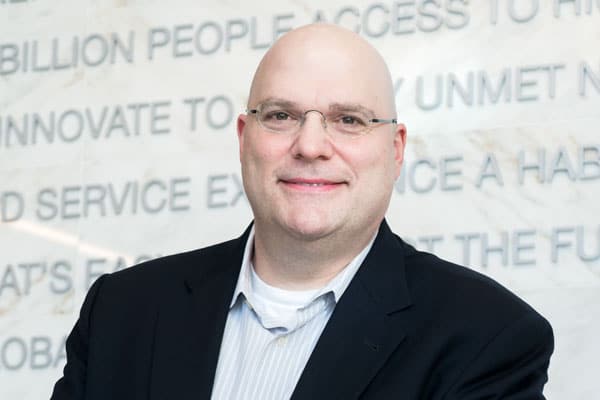Mylan has been in the pharmaceuticals business since 1961, but it’s fairly evident that Paul Campbell’s fifteen years at the company have transpired during truly inspired times.
Mylan’s staggering exponential growth saw a company with $1 billion in revenue in the United States transform into one of the largest generic and specialty pharmaceuticals companies in the world. Campbell, who serves as Mylan’s senior vice president, controller, and chief accounting officer, says that the company’s success comes in large part from striking the right balance between external acquisitions and internal opportunities. He sees Mylan’s business model as the one to beat at present and is intent on aiding growth with world-class information systems and upgraded reporting capabilities.

During his time at Mylan, Campbell has served in a wide variety of progressively more complex positions, including vice president of global operations finance; director of internal audit; and vice president and assistant controller. The variety of roles, Campbell says, reflects the culture at Mylan. “I think it is unique and innovative that Mylan provides people opportunities to get involved in certain activities that their titles may not exactly say would be related to their job description,” he says.
One opportunity for growth came starting in 2006, when Mylan made two landmark acquisitions that repositioned the company as a giant in its field. First, by gaining a controlling interest in India-based Matrix Laboratories, Mylan became one of the first pharmaceutical companies to buy a majority stake in an Indian-domiciled company. “I got an opportunity to spend time understanding and working through not only the culture, but also the business practices within India, which can be very different than what we’re used to in the US,” Campbell says. “That was very challenging.”
Matrix provided Mylan with world-class manufacturing capabilities. It also provided the company with an opportunity for a vertical integration strategy, which Campbell thinks was visionary at the time.
Just a year later, Mylan announced that it would acquire the generics branch of Merck KGaA, a German chemical and pharmaceutical company. The acquisition was a carve-out of the larger business, and the company was twice the size of Mylan at the time. The acquisition also yielded a much-needed global footprint for Mylan to accomplish its mission statement to deliver medicine to the world’s seven billion people.
Campbell says that Mylan’s relatively short list of acquisitions prior to 2006 made the complexities of those two deals all the more pronounced from both an accounting and integration perspective. In fact, Campbell counts figuring out the complex accounting around those transactions and learning what it takes to integrate businesses together as some of the milestones of his career.
Such extreme growth has provided unique challenges for Campbell and his team. He cites system integration and accelerating reporting of information to the speed of business as areas he’s anxious to address. “Obviously, from a statutory reporting perspective, we have systems to report our numbers, but providing the right information to business leaders really requires us to have a world-class management reporting system and processes supporting that effort,” Campbell says. Campbell and his team will be looking to upgrade and integrate those systems over the course of the next 12–18 months.
During that time, Mylan will continue to evolve, especially when it comes to its product offerings. The company has worked to complement the external acquisitions by developing a significant pipeline of products in both the biologics and respiratory spaces, and that pipeline—whether strictly internal or as part of a partnership—has been a great source of research and investment for the company.
Like the opportunities he’s been afforded that may not have expressly reflected his job title, Campbell works to get his team members as involved as possible. “I think it really prepares people better for when we actually make a decision to take on an acquisition,” Campbell says. “If you’ve involved in the process for a period of time, you can have a better understanding of what we are buying and why we’re buying.”
Moving forward, Campbell says his personal goal is to provide a guiding hand and supportive role for his team. “We have a saying here at Mylan that your attitude equals your altitude,” Campbell says. He places a high priority on making sure his team feels empowered and emboldened just as he has throughout his career at Mylan. In fact, over the course of his fifteen years with the company, Campbell is proud to have been part of such exceptional growth, growth in which he played an integral role. “We sell in more than 165 countries and territories and offer more than 7,500 products now,” Campbell says. “In 2016 we were around $11 billion dollars in global revenues. We’ve got a workforce of around 35,000 people, so it’s been just unbelievable what we have become from where we were.”
Photo by Micah Wolf/Mylan

